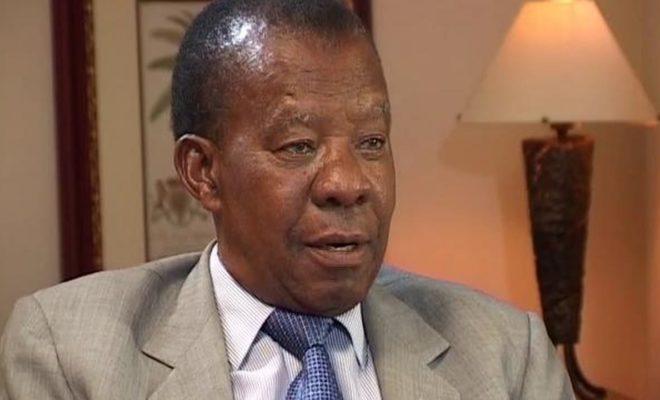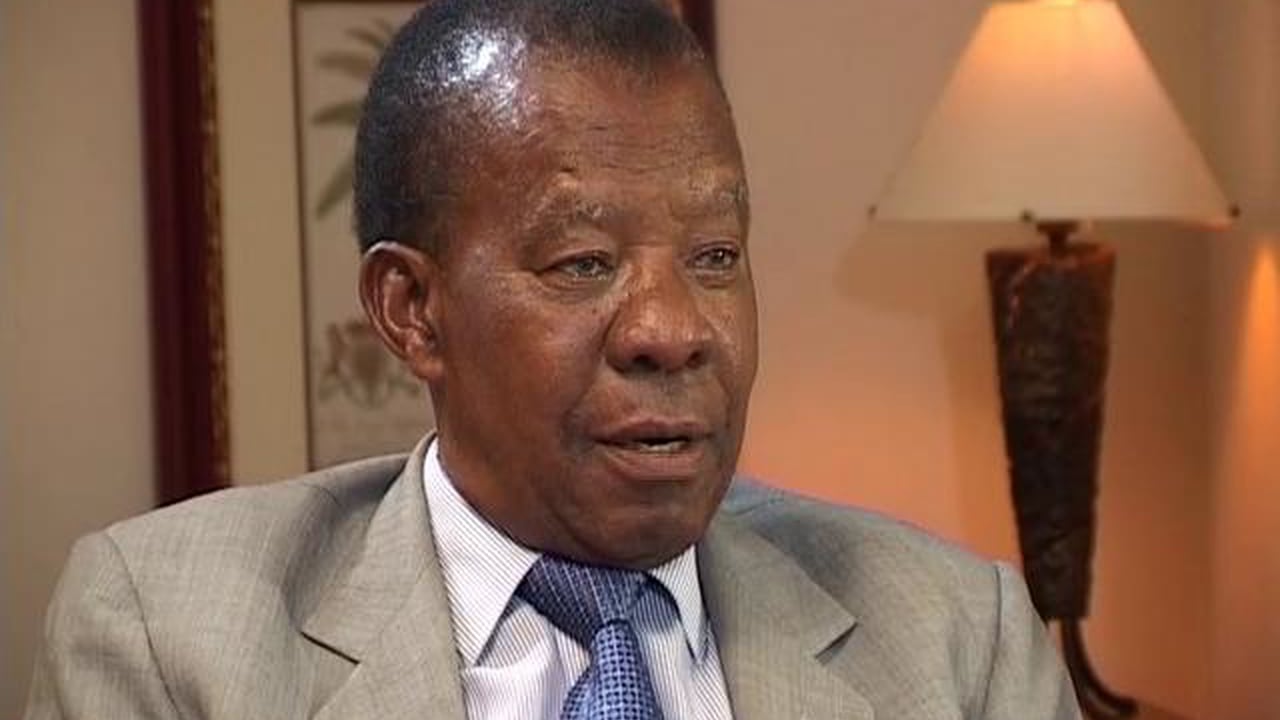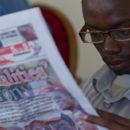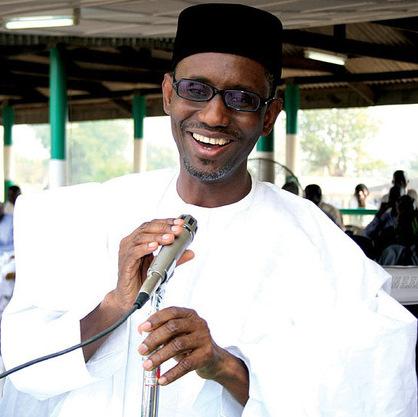Quett Masire (1925-2017), the great African leader you’ve never heard of

As president of Botswana for nearly two decades, the humble Masire was responsible for setting the country on a path to prosperity.

Quett Masire was president of Botswana from 1980 to1998.
Quett Masire, president of Botswana from 1980 to 1998, passed away aged 91 on 22 June 2017. He was one of Africa’s greatest leaders. Because he was a low key figure and from a large but sparsely-populated country, he does not appear in the pantheon of great rulers. But he should.
Masire’s time in office was the most difficult for Botswana, not least because it was in the firing line in the wars against apartheid. When it became independent in 1966, Botswana was surrounded by white-ruled countries. To the east was Rhodesia. To the west was South West Africa (now Namibia), administered by South Africa with its ridiculous corridor to the north of Botswana cutting it off from the rest of Africa. South Africa made several attempts to incorporate Botswana into the Union.
I first met President Masire in the early 1980s in a London hotel for an interview. The room was small and ordinary. We both sat on the bed. He was travelling with a small team, just three of four people as I remember. At the time this was not the African presidential style. Many travelled with an entourage that filled a plane. The interview was straightforward. Masire gave short, sharp answers.
I met him again recently in London with his son-in-law Bishop Trevor Mwamba at a lunch to celebrate the publication of his biography. He seemed tired but occasionally his eyes would flash and he would deliver a strong opinion on whatever we were discussing.
When he became president in 1980, Botswana was exceedingly poor with low levels of education and health provision. Much of it was bush. Cows were its livelihood. But Botswana survived its birth and was blessed with what many richer, more developed African countries lacked: good leadership.
The first president, Seretse Khama, was nearly prevented from becoming head of state because he had married a white woman. The British government, afraid of upsetting the white supremacists ruling South Africa, refused to allow the couple to live together. The Tswana chiefs also tried to block the marriage. But in the end the British gave way, Botswana became independent, and the couple were able to live together until Khama died in 1980.
President Masire succeeded him, coming to power the same the year that the war for Zimbabwe was finally won. At the time, the war for South Africa was also hotting up and young black South African guerrillas of the African National Congress (ANC) began to infiltrate South Africa from across the borders of Botswana, Zimbabwe and Mozambique.
In retaliation, South Africa trained and supplied guerrilla movements in Angola and Mozambique. Botswana found itself on the frontline, but it could not afford to break its links with South Africa. It banned the ANC military wing from operating, but it did not turn back young men who were fleeing South Africa to become ANC fighters. Moreover, when the South African army crossed the border to raid houses they believed to be inhabited by ANC guerrillas, they were opposed by Botswana’s forces.
During the boycott of South African goods and services by foreign companies, several South African or foreign-owned companies located to Botswana. Around the same time, diamonds were discovered. Elsewhere in Africa, diamonds have been a curse, but in Botswana the Masire government made a deal with the South African gold and diamond giant, De Beers. The government got substantial revenue from the diamonds, which was used for health and education. Later, during the AIDS crisis, the country funded its own programme at a huge expense while other African countries relied on international aid.
Under Masire’s cautious but determined style, he gradually forced de Beers to build a sorting house in Gaborone where the diamonds were graded before being sent to De Beers in London. He also demanded that Batswana people were trained in sorting and evaluating diamonds.
Today, Botswana and its 2.5 million population is ruled by Seretse Khama’s son Ian. The country has had one of the fastest growth rates in the world and the revenues are spent on services such as health and education. In survey after survey, Botswana ranks highly in governance, economic growth and human development. Corruption levels are relatively low.
In this transformation, Tswana values have not been lost. Boasting or displays of wealth, for example, are frowned upon and criticism of others is made obliquely, not directly. President Masire’s leadership was crucial to this cautious approach to the future based on strong traditional values.







There is no doubt that President Masire was a blessing to the people of Botswana as well as the whole of Africa where good leaders are hard to come by. Through him, his predecessor and his successors, Botswana has become the epitome of good governance in the African context.
Sadly, Botswana still mistreats non-citizens from neighbouring countries who are frequently flogged in ‘Chiefs courts’ on petty allegations.
Great African Leader
Rest in Peace and thank you for your service.
We were blessed to have such a President. Man of jokes and man who used to encourage people to fend for themselves.
A great African leader.
May your soul rest in peace RaGaone.
Observer it is not only non citizens but also citizens who appear before customary courts flogging is allowed. You have a choice to be tried under customary law or common law.
Unfortunately Mr Observer, if you are in any country you must observe the rule of law. Our customary court system is functioning well. Traditional Setswana customs and laws apply to everyone irregardless of your origin, otherwise if you think you are above these norms then just dont come to our country. If you have a gun just leave in your country because its use is not needed here. No one owns a gun here. Simply because there is no reason you can put forward for buying gun that is solely designed to kill a human being. So you can convince us that you did not intend to murder, and so you will hang. Our own lads get flogged when they misbehave. We dont destroy the future of young people by locking them up in prisons and we dont waste time by long court cases. Few hours then judgement and a few strokes on your bare buttocks or bare back and you are free to go. And with that signature on your back we are sure you will never be up to mischief again. And all who have had that medicine always live peacefuly amougst us forever. Read about the famous British guy, Peter Mcntyre who was flogged by King Tshekedi Khama in the 1800’s. The British launched a war on the Bammangwato amd lost, even the flogged chap refused to go back to Britain. His descendants are here even to this day. So its simple, behave or you will be put in line. I also find it amazing that you will never hear of a Motswana who is up to mischief in a foreign contry. Why?
Botswana is a great country which other African countries can learn from; flogging of lawbreakers as Observer alludes to saves people overfilling jails and having government feed them…spare the child a rod….
Most of African countries which are in chaos have plenty for everyone; oils etc. but have their peoples sleepless running helter skelter!!
Great article. Diamonds, nevertheless, were discovered earlier in Botswana, in the late 1960s: “2017, the year of the 11th International Kimberlite Conference, is the 50th anniversary of the discovery of the first economic kimberlite in Botswana, now the Orapa Mine.”
http://www.11ikc.com/showcontent.aspx?MenuID=1989
As for [Ra_Gaone ] late former president Q.K.J. he was well loved wherever he went, he knew the Tswana vernacular so well that many learnt from him, and it made you proud to be a Motswana…”Matlhogojane!!”
cialis dosage cheap cialis
cialis dosage cialis coupon